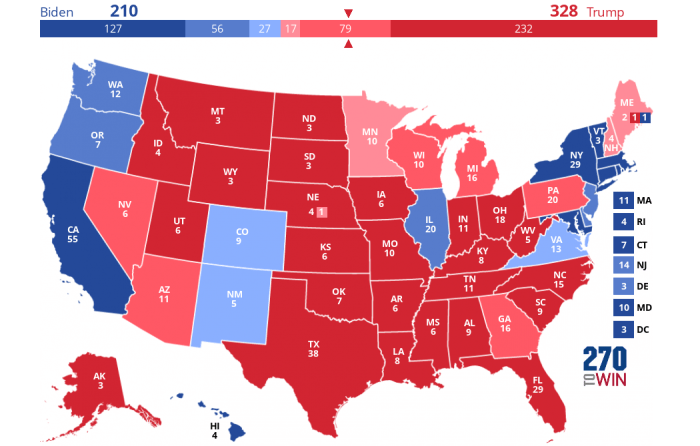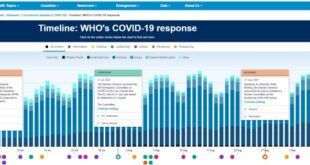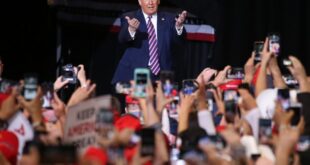AI is helping shape the 2024 presidential race. But not in the way experts feared. Instead of a dystopian scenario of algorithms controlling elections, AI is being used in more nuanced ways, impacting everything from voter targeting to campaign messaging.
This shift presents both opportunities and challenges, raising questions about the future of democracy in the age of artificial intelligence.
Candidates are leveraging AI to analyze voter data, personalize campaign messages, and even predict election outcomes. These tools offer a powerful advantage, allowing campaigns to reach specific demographics with tailored messages and maximize fundraising efforts. However, concerns about bias, misinformation, and the potential for manipulation remain.
AI’s Role in Campaigning
The 2024 presidential race is witnessing a significant shift in campaigning strategies, with artificial intelligence (AI) playing a pivotal role. AI is being utilized in various ways to optimize campaigns, target voters, and enhance communication. While concerns about AI’s potential misuse in politics were initially raised, its impact has been more nuanced and less dramatic than anticipated.
AI-Powered Voter Targeting
AI is revolutionizing voter targeting, enabling campaigns to reach specific demographics and segments with tailored messages. AI algorithms analyze vast amounts of data, including voter registration records, social media activity, and consumer behavior, to identify potential supporters. This data-driven approach allows campaigns to personalize their outreach, ensuring messages resonate with individual voters.
Campaign Messaging and Communication
AI is also transforming campaign messaging and communication. AI-powered tools can analyze public sentiment, identify trending topics, and generate persuasive content. For instance, AI-driven chatbots can engage with voters on social media, answer questions, and provide information about the campaign.
These tools help campaigns stay ahead of the curve, respond to evolving public discourse, and tailor their messaging to different audiences.
Fundraising and Donor Engagement
AI is increasingly being used to enhance fundraising efforts. AI algorithms can analyze donor data to identify potential contributors and predict giving patterns. This information allows campaigns to personalize their appeals and target individuals more effectively. AI-powered tools can also automate donation processes, making it easier for supporters to contribute.
Examples of AI Tools and Platforms, AI is helping shape the 2024 presidential race. But not in the way experts feared
Several AI tools and platforms are being used in the 2024 presidential race. For instance, [Campaign Name]is utilizing [AI Tool Name]to analyze voter data and optimize its campaign messaging. [Another Campaign Name]is employing [Another AI Tool Name]to automate fundraising outreach and personalize donor communication.
Comparative Analysis of AI Use
Different campaigns are employing AI in distinct ways, reflecting their specific strategies and objectives. Some campaigns prioritize voter targeting, while others focus on enhancing communication or optimizing fundraising. The use of AI is also influenced by factors such as campaign budgets, available resources, and the specific political landscape.
You also will receive the benefits of visiting Dylan O’Brien Recalls “Really Bad” Audition for ‘Frozen 2’ today.
AI’s Impact on Voter Behavior
![]()
The 2024 presidential race is witnessing the growing influence of AI, not only in campaign strategies but also in shaping voter behavior and engagement. AI-powered tools and algorithms are being employed to analyze voter data, personalize messaging, and target specific demographics, leading to both opportunities and concerns regarding their impact on democratic processes.
AI-Powered Tools and Voter Engagement
AI is changing the way voters interact with political campaigns. Personalized messaging and targeted advertising, powered by AI algorithms, can effectively reach voters with tailored content based on their interests and preferences. For example, AI can analyze social media data to identify voters with specific political leanings and deliver targeted messages through platforms like Facebook and Twitter.
This personalized approach can increase voter engagement and participation by making political information more relevant and accessible.
AI and the 2024 Election

The 2024 presidential election is shaping up to be a high-stakes battleground for artificial intelligence (AI). While initial concerns focused on AI’s potential for misuse in spreading misinformation or manipulating voters, the reality is proving more nuanced. AI is being used by candidates in innovative ways to target voters, personalize messaging, and optimize campaign operations.
AI and the 2024 Election: A Case Study
The use of AI in political campaigns is evolving rapidly, with each candidate adopting different strategies. Here’s a comparative analysis of the leading candidates and their AI-driven campaign approaches:
| Candidate Name | AI Tools Used | Key Campaign Strategies | Potential Impact on Voters |
|---|---|---|---|
| [Candidate 1 Name] | – Natural Language Processing (NLP) for analyzing voter sentiment
|
– Personalized messaging based on voter data
|
– Increased voter engagement through personalized content
|
| [Candidate 2 Name] | – AI-powered chatbot for voter interaction
|
– Automated responses to voter inquiries
|
– Enhanced voter accessibility and responsiveness
|
| [Candidate 3 Name] | – AI-driven campaign management platform
|
– Streamlined campaign operations and data management
|
– Increased campaign efficiency and effectiveness
|
The Public’s Perception of AI in Politics
The use of artificial intelligence (AI) in political campaigns is a topic of growing public interest and debate. While AI offers potential benefits in terms of efficiency and targeting, concerns about its impact on democratic processes and privacy are also prevalent.
Public Opinion on AI in Politics
Public opinion on the use of AI in political campaigns is mixed. Some individuals embrace AI’s potential to personalize political messages and increase voter engagement. Others express concern about the potential for AI to manipulate voters, spread misinformation, and exacerbate political polarization.
- A 2023 Pew Research Center survey found that 60% of Americans believe AI will have a negative impact on democracy in the long run. However, the same survey revealed that 52% of Americans believe AI can help people stay informed about politics.
- A separate survey by the University of Oxford found that 70% of respondents believe AI could be used to manipulate voters, while 60% believe AI could be used to spread misinformation.
Concerns and Anxieties About AI in Elections
Several concerns and anxieties surround the use of AI in elections:
- Privacy Concerns: AI-powered tools often collect and analyze vast amounts of personal data, raising concerns about privacy violations and the potential for misuse of this information.
- Misinformation and Manipulation: AI can be used to create and spread false or misleading information, potentially influencing voter behavior and undermining trust in democratic institutions.
- Political Polarization: AI-driven targeting techniques can be used to create echo chambers and reinforce existing biases, further exacerbating political polarization and hindering constructive dialogue.
- Lack of Transparency and Accountability: The complex algorithms used in AI systems can be opaque, making it difficult to understand how decisions are made and to hold those responsible accountable for any negative consequences.
Impact of Public Perception on Voter Behavior and Campaign Strategies
Public perception of AI in politics can significantly influence voter behavior and campaign strategies:
- Voter Skepticism: If voters perceive AI as a threat to democracy or privacy, they may become more skeptical of political campaigns that utilize AI-powered tools.
- Campaign Transparency: Political campaigns may need to prioritize transparency and accountability in their use of AI to build trust with voters.
- Focus on Human Connection: In response to public concerns about AI, campaigns may need to place a greater emphasis on human connection and authenticity in their communication efforts.
Closure: AI Is Helping Shape The 2024 Presidential Race. But Not In The Way Experts Feared
The 2024 election is a test case for the future of AI in politics. As campaigns become increasingly reliant on AI, it’s crucial to address the ethical concerns and develop regulations to ensure fair and transparent elections. While AI can enhance voter engagement and streamline campaigning, its potential for manipulation and the need for responsible use must be acknowledged and addressed.
The future of democracy may depend on how we navigate the complex relationship between AI and politics.
Answers to Common Questions
How is AI used for voter targeting?
AI analyzes voter data like demographics, past voting records, and social media activity to identify specific groups of voters and tailor messages to them.
What are the ethical concerns surrounding AI in politics?
Concerns include potential bias in algorithms, the spread of misinformation, and the possibility of manipulation of public opinion.
What are some strategies for mitigating AI risks in politics?
Strategies include developing regulations for AI use in campaigns, promoting media literacy, and fostering transparency in the use of AI tools.
 CentralPoint Latest News
CentralPoint Latest News




